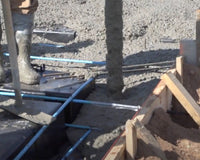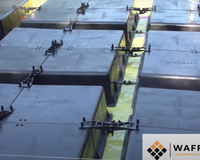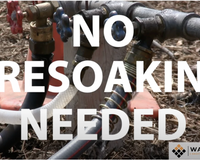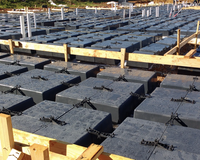Depending on the scope of your project and where you are building, you may be looking for alternatives to a geotechnical survey. Although you can’t exactly sidestep the requirement for geotechnical surveys, not every project demands the same level of testing. Here’s everything you need to know about alternatives and how you can build on your site’s soil safely. 
What is a geotechnical report?
A geotechnical report investigates your site’s soil conditions. It contains valuable information that informs aspects of a project at almost every stage. Each report is led by a geotechnical engineer who determines the scope of the tests, methods used, and design recommendations based on your soil conditions.
These surveys are almost always required before you can apply for permits, and there are few exceptions to satisfying this requirement. Soil conditions can drastically affect site safety and the long-term integrity of a structure.
When do you need a soils report?
When you’re building on expansive soils or challenging slopes, there’s no alternative to having a current geotechnical survey of your site. These conditions indicate a greater need to understand the subsurface conditions of your site to ensure it’s safe and free from damage many years down the road.
The IBC lists soil conditions where geotechnical surveys are always required before construction. Consult a geotechnical engineer if your soil falls under any of the following categories:
- Questionable Soil
- Expansive Soil
- Deep Foundations
- Rock Strata
- Seismic Design Categories C through F
In other cases, what is known about the soil and surrounding area indicates a low risk of adverse soil conditions for construction and long-term use, meaning less stringent testing is required.

Geotechnical soil testing alternatives
Geotechnical surveys are almost always required for a residential construction project, but there is some variability in how you can satisfy your local geotechnical survey requirements.
For instance, current Geotechnical surveys from nearby sites can sometimes satisfy the requirement. However, this isn’t always the case, and you will likely still need to produce a current report before you can successfully apply for permits.
After surveying the land and researching local conditions, your geotechnical engineer will advise you on what is needed to assess your site’s soil conditions accurately. Much of what is required to complete a geotechnical survey of your site will depend on the scope of your project, its intended use, and what is already known about soil conditions in the area.
Are geotechnical reports still required for building additions?
If your project fits the specifications of the original report, you may not require another soil investigation for each lot. You will likely need to acquire a new report for your site when your project doesn’t fit the specifications listed in the original report or if it is no longer valid.
You can only use a geotechnical report for structural additions if your geotechnical engineer included this in the report. Otherwise, every additional structure will require a new geotechnical report and consultation with an engineer.

More reasons to get a geotechnical report
Almost everyone will be required to conduct a current geotechnical survey before starting a construction project, but there are many more reasons to get one aside from requirements.
- Geotechnical reports help at every stage
- Get expert advice on how to build on your soil type
- Protect your foundation from cracks
- Make your construction site safe
- Each survey is tailored to the specifications of a project
Everyone involved with your project will need to consult your geotechnical report at some point. You may also need to consult your geotechnical engineer whenever things change, or you have questions about your report.
Because so much depends on your soil conditions, discussing your report with a geotechnical engineer has significant benefits.
There’s no one size fits all solution to completing a geotechnical survey. Your geotechnical engineer may recommend various investigative techniques that use drilling, boring, lab testing, and other equipment that reveals soil traits based on your project’s scope and soil type.
The invaluable information provided in your report will make your construction site safer, ensure you don’t go over budget or time, and help protect your project against long-term soil movements and differential pressures.
Get expert advice on geotechnical surveys
We’ve worked with our fair share of geotechnical engineers and soil reports for various projects. Learn more about geotechnical investigations by reading our articles by engineers in the field. Read from first-hand knowledge and find all the answers to your soil questions.
Or, Contact a Wafflemat Staff Member Today to chat with one of our experts.





